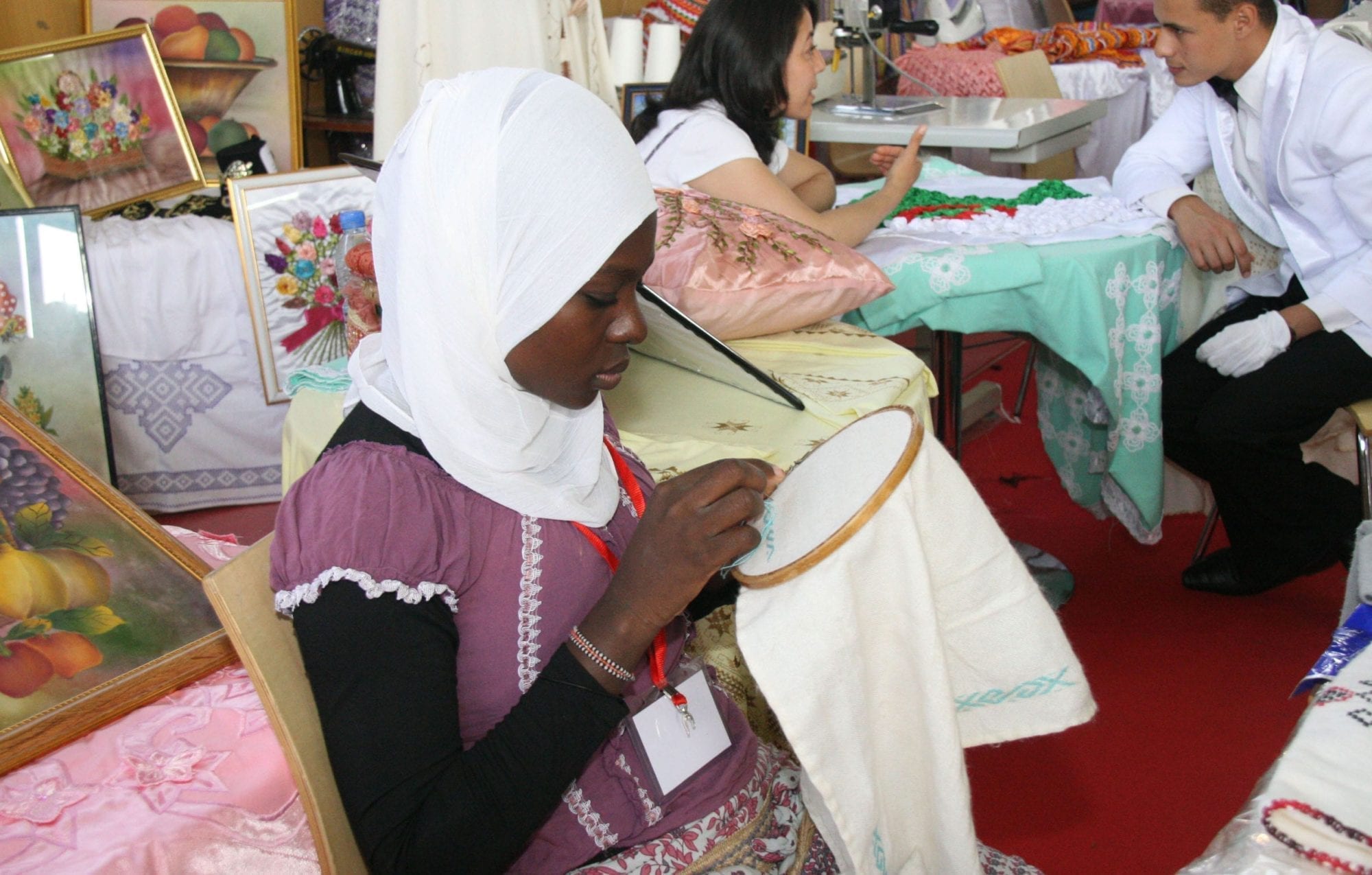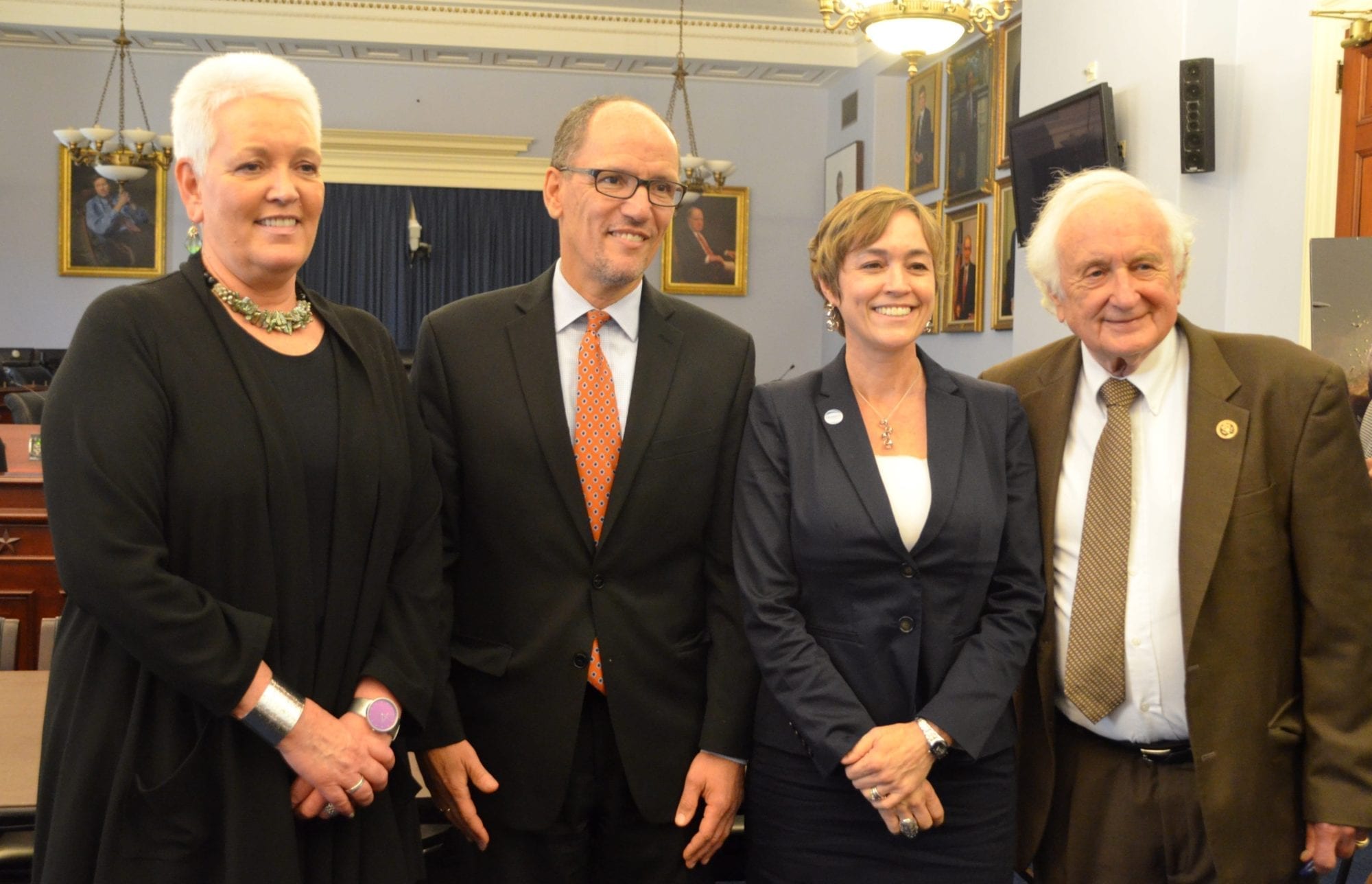
Solidarity Center Marks Launch of Global Labor Program
Dozens of congressional lawmakers, policymakers, union leaders, human rights and democracy representatives and other Solidarity Center allies gathered on Capitol Hill in Washington, D.C., yesterday to mark the launch of the Global Labor Program, a cooperative effort by the Solidarity Center and the U.S. Agency for International Development (USAID) to promote worker rights, gender equality and democracy worldwide.
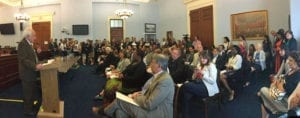
Rep. Sandy Levin spoke to a packed audience marking the launch of the Global Labor Program. Credit: Solidarity Center/Lauren Stewart
Opening the event, USAID Administrator Gayle E. Smith said, “Development cannot be sustained or inclusive without the availability of decent work. How do we reach workers? Through the Global Labor Program.”
The five-year Global Labor Program will further expand labor rights and strengthen workers’ ability to achieve decent work, lift the voices of disenfranchised workers and broaden gender equality.
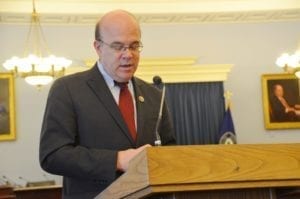
Rep. Jim McGovern: The Solidarity Center has stood by workers no matter how difficult the circumstances. Credit: Jessica Benton-Cooney/USAID
Praising the Solidarity Center for ensuring the “voiceless have a voice,” U.S. Labor Secretary Thomas Perez told the packed crowd that “the Global Labor Program is first and foremost about expanding worker voice and enabling workers to have meaningful input in the decisions that impact their lives and the lives of their families.
“When workers obtain their rights, it is almost always a step toward democracy,” said Rep. Sandy Levin (D-Mich.). Rep. Jim McGovern (D-Mass.) and Rep. Nita Lowey (D-N.Y.) also took part in opening the event.
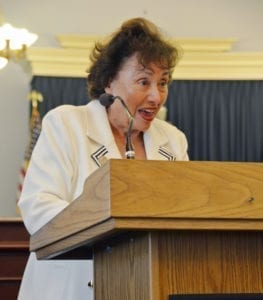
Rep. Nita Lowey: “Labor justice remains essential.” Credit: Jessica Benton-Cooney/USAID
In a letter to the gathering, Sen. Ben Cardin (D-Md.) wrote, “Solidarity Center’s ongoing work with civil society, labor unions and other governments is helping to promote both the universal values of human rights … in countries ranging from Colombia to Bangladesh.”
Following the opening remarks, moderated by David Yang, deputy assistant administrator in USAID’s Bureau for Democracy, Conflict and Humanitarian Assistance, experts from the development community took part in a panel discussion to examine the role of labor rights and civic participation in fostering more just and sustainable development.
Working People Hard-hit by Closing Civic Space
Panel moderator, Solidarity Center Executive Director Shawna Bader-Blau noted how “the effect of closing space is felt acutely by labor.”
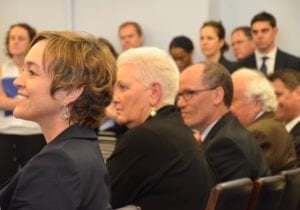
Solidarity Center Executive Director Shawna Bader-Blau, USAID Director Gayle Smith and Labor Secretary Thomas Perez at the Global Labor Program launch. Credit: Jessica Benton Cooney/USAID
“A forthcoming global survey by the International Trade Union Confederation is about to show a substantial global rise in documented attacks on worker speech and assembly rights, and specifically anti-union violence,” Bader-Blau said.
InterAction President Lindsay Coates continued the discussion on closing space for civil society, saying that “independent civil society is essential, but in country after country we see a growing crackdown on civil society space making it more difficult or even impossible for civic sector to do what it needs to do to help bring peaceful, sustainable ends to intractable crises and to advocate with governments and the private sector to push for development solutions and economic policies that really work for average people.”
Unions Needed to Secure Good Wages, Conditions for Migrant Workers
Turning the focus to labor migration, Jon Stivers, USAID assistant administrator of the Bureau for Asia, said labor and migration are crucial development issues in Asia—and unions are key to securing good wages and working conditions.
Further, “holding governments accountable is key to worker rights and open civil society,” he said.

Event panelists included (from left): InterAction President Lindsay Coates, Jon Stivers, USAID; Caroline Mugalla, EATUC; Sarah Gammage, ICRW; and Rob Lederer, EICC. Credit: Jessica Benton-Cooney/USAID
Caroline Mugalla, executive secretary of the East African Trade Union Confederation (EATUC), said some 80 percent of workers across East Africa—60 percent of whom are young people—have jobs in the informal economy, meaning they generally are paid low wages, receive no sick leave, pensions or other social protections and labor in often unsafe conditions.
“If the issue of social protections is not talked about, especially for young people, we are not talking about sustainable development,” she said.
Women’s Economic Empowerment Crucial to Development
Discussing how sustainable development requires ensuring gender equality, Sarah Gammage, director of Gender, Economic Empowerment and Livelihoods at the International Center for Research on Women (ICRW), said strong unions bolster gender equality.
“Women’s economic empowerment is crucial to development, but we often neglect the connection between workers’ rights and gender rights,” she said.
Rob Lederer, executive director of the Electronic Industry Citizenship Coalition (EICC), also took part in the panel. The EICC is a nonprofit coalition of electronics companies committed to supporting the rights and well-being of workers and communities worldwide affected by the global electronics supply chain.
Closing the event, AFL-CIO Executive Vice President Tefere Gebre described the difficult conditions for workers he has witnessed first-hand in countries like Colombia and Ethiopia, saying, “worker rights are under attack in far too many countries.
“Our economies are inextricably connected, and we—as workers—are either going to be pitted against each other in a race to the bottom or we are going to be rising together creating shared prosperity for everyone.”

